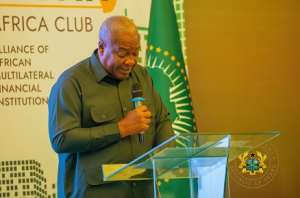
President John Dramani Mahama has signalled a major shift in Ghana’s local governance structure, revealing that the country could begin electing Metropolitan, Municipal, and District Chief Executives (MMDCEs) starting in 2026.
The move is part of sweeping constitutional reforms aimed at deepening decentralisation, strengthening accountability, and enhancing community participation in development.
Speaking at the official opening of the 2025 orientation programme for newly appointed MMDCEs in Accra on Wednesday, June 18, President Mahama disclosed that the National Review Committee on local governance is in the final stages of consultations on constitutional amendments that would allow for the popular election of District Chief Executives.
“MMDCs, you may be the last batch of MMDCs appointed. The national review committee is going round. I’m sure some of you would have been consulted, and it will present its recommendation in August. And one of the major items that has been canvassed is the election of DCEs. There’s no doubt that Ghanaians want their DCEs elected,” he told the gathering.
Mahama said recent surveys point to overwhelming public support for electing DCEs, adding that the shift is in line with democratic aspirations and the need for increased local accountability.
GH¢25 Million Boost for Each District
In a landmark funding commitment, the President also announced that each district assembly will receive a minimum of GH¢25 million from the District Assemblies Common Fund (DACF) this year. This, he noted, marks the highest single-year disbursement to local governments in the Fourth Republic.
According to the President, 80 percent of the total DACF for 2025 will be directly transferred to the MMDAs, empowering them to lead local development initiatives.
“These resources must reflect the needs of your people. This is not a personal reward; it is a public responsibility,” he emphasized, warning that any misuse of the funds would be met with swift investigations by anti-corruption agencies.
He reiterated that his administration would not tolerate mismanagement, and no MMDCE found culpable would be shielded from prosecution.
Decentralisation Reforms on the Horizon
Mahama revealed that his government is laying the groundwork for sectoral decentralisation — a transformative approach that would shift control of key services like education, health, roads, and sanitation from central government to local authorities.
Under this model, allocations from the National Health Insurance Scheme, Road Fund, and education budget will be tied to performance indicators at the district level.
He also reminded all MMDCEs of their constitutional obligation to declare their assets by July 15, stressing that transparency would be a non-negotiable principle of his administration.
Call for Partnership and Community-Led Development
Mahama urged MMDCEs to work collaboratively with traditional leaders, civil society organisations, and Members of Parliament, stressing that strong partnerships are essential to achieving tangible progress at the grassroots.
In closing, the President described the orientation as a moment of reckoning and responsibility, saying Ghana’s future depends on the commitment of local leaders to serve with honesty, innovation, and integrity.


